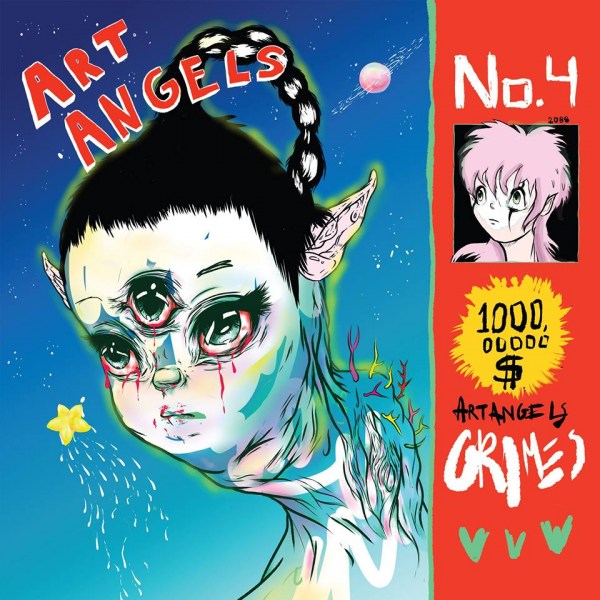By Michael Moss
Jim Morrison would have been eager to work with Grimes. He had the sense to predict that a single artist, surrounded by machines and electronics, could be the future of music. Jim would have appreciated a DIY sound made by loopers and vocal synth-processors and GarageBand and other words that wouldn’t belong in the past. And he would have been drawn to the visual of one person controlling every layer of the music with the flick of a switch. One voice and a chorus of machines – that’s what his ideal aesthetic would look like for a future artist.
Twenty seven year old Claire Boucher, AKA Grimes, is this aesthetic in the flesh. Encircled by various pieces of musical equipment on stage, Grimes can record and engineer an entire orchestra using virtual synths, guitars and drum machines. Her style is noteworthy as well. She sometimes dresses like a retro pixie from a forgotten 80s movie. In her music video for Kill V. Maim, there’s a strong anime and Akira influence. The Art Angels album cover is even a riff on those old Nintendo 64 game boxes. Grimes masterfully creates this eclectic image. She mixes a variety of styles to solidify her place as a worthwhile act to watch in 21st century pop music. Above all else, she is also a former McGillian.
However, there was some hesitation in appreciating Grimes. I thought to myself: what does a twentysomething, heterosexual male have to identify with an artsy, hipster, electronic dream-pop female artist? And then you see pictures of her laughing with A$AP Rocky, or smoking a cigar with Jay-Z, and you start to re-evaluate her musical depth. Boucher is signed to Jay-Z’s label, Roc Nation, so musical merit is expected.
In this case, musicality trumps the image and aesthetic. There’s everything from jangly guitar pop on tracks like California, to ethereal 80s soundtrack on Realiti, to K-pop on SCREAM. The album weaves in and out of musical styles seamlessly. However, emerging DIY artists like Grimes have such an appetite for creativity that they usually fail to capitalise on their ambition.
This doesn’t happen on Art Angels. The one track that catapults Grimes, Flesh without Blood, is the best song on the album. It’s a perfect cocktail of the most recognizable tropes in popular music on the radio. Yet, Grimes finds a way to make it fresh, modern and different. Boucher’s angelic voice is given more room to shine here than anywhere else on the record. The song is embarrassingly catchy; it’s the one moment in her catalogue that stays totally weird but accessible to everyone.
The album is a success in that it mines recognizable hooks to co-opt an entirely original piece. I don’t know if Jim Morrison’s prediction of the future was Art Angels, but it must be pretty damn close.
